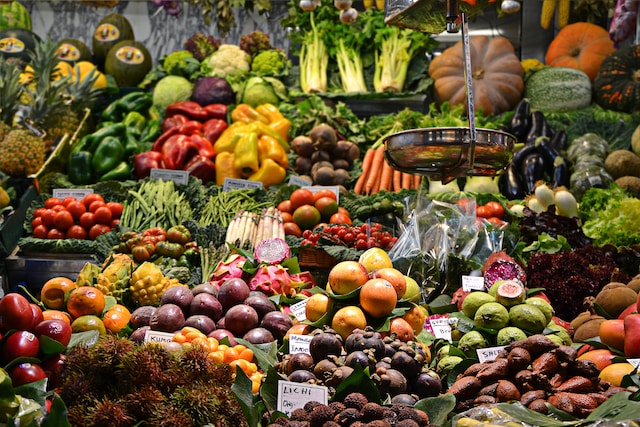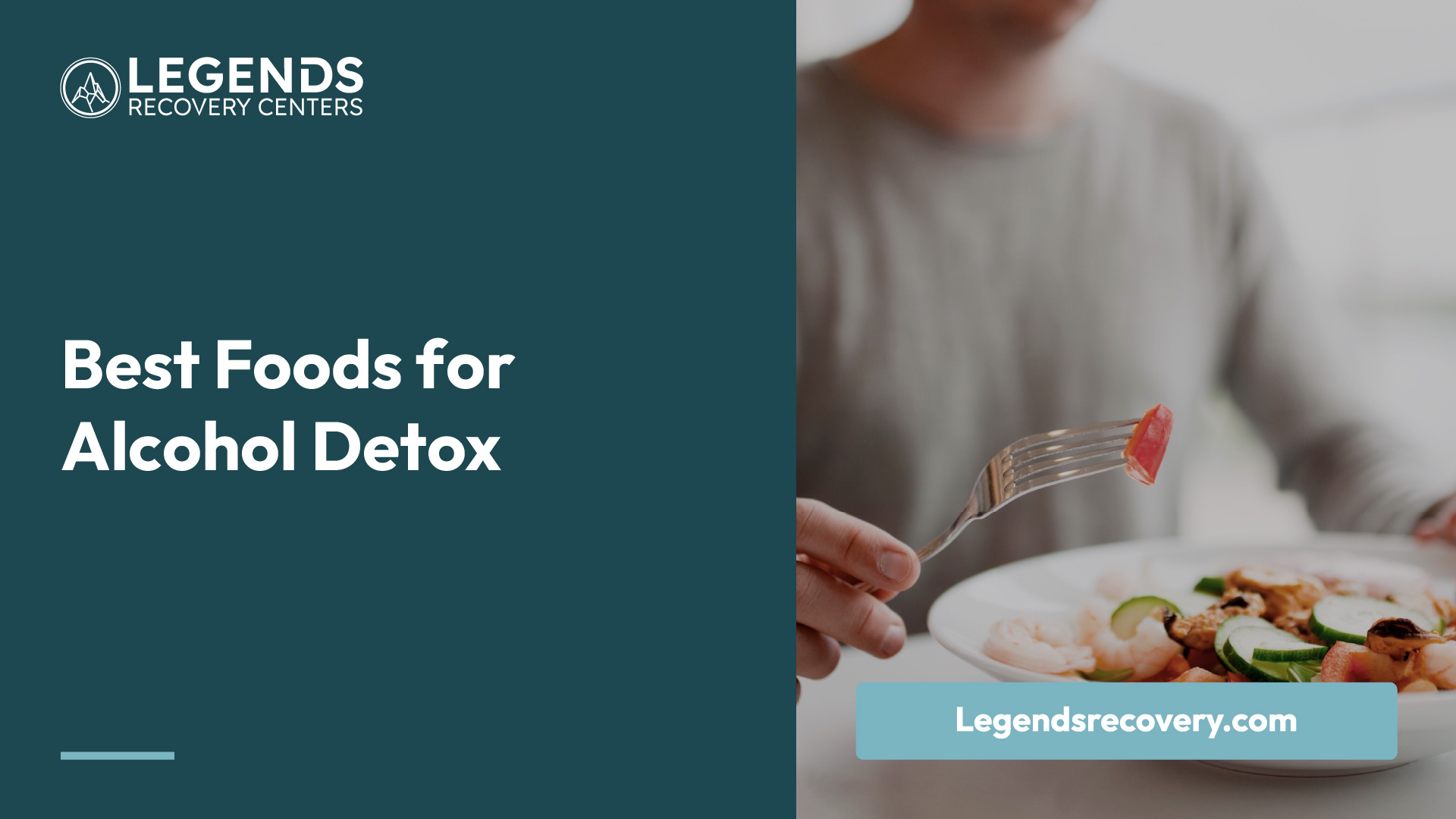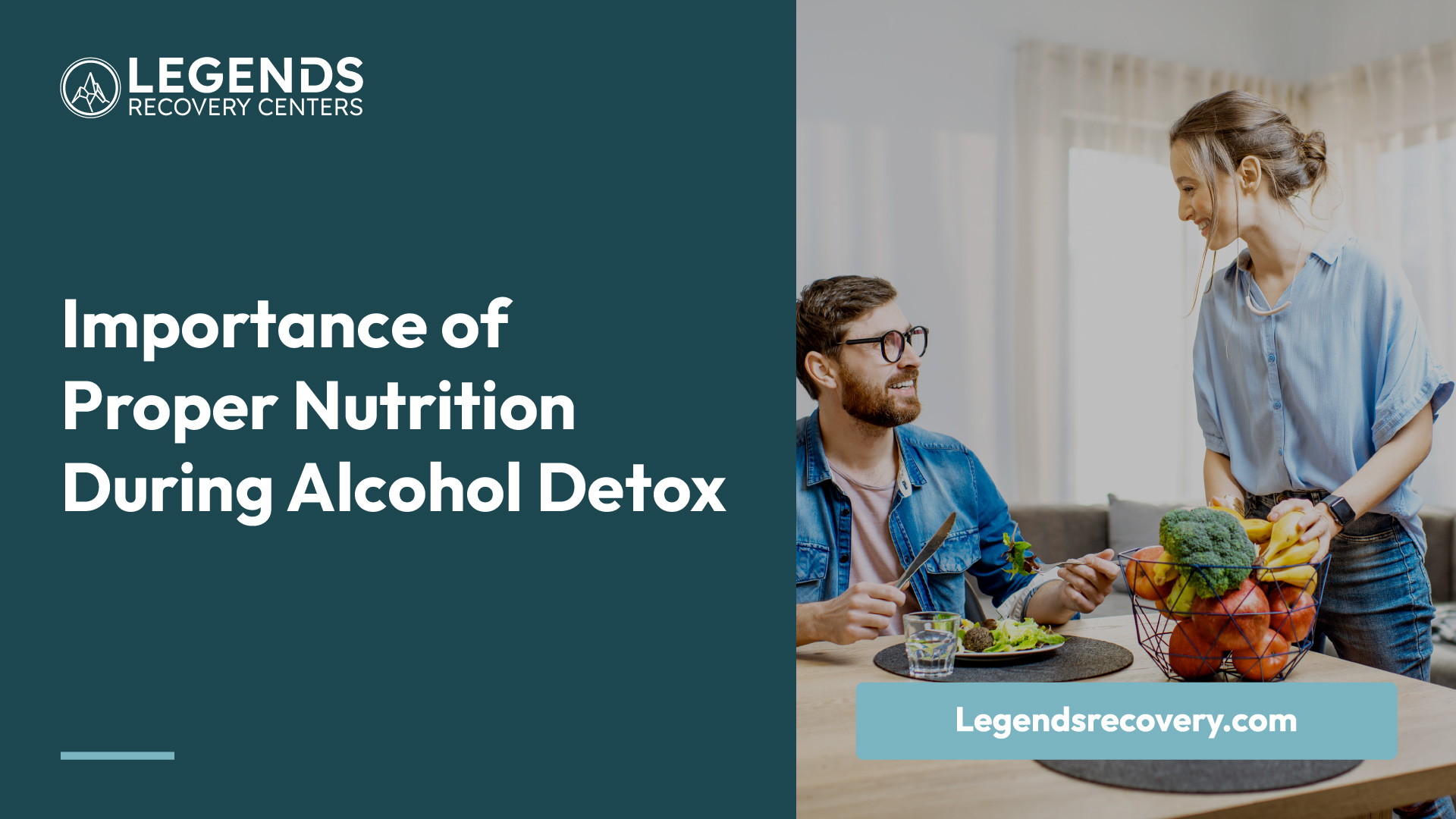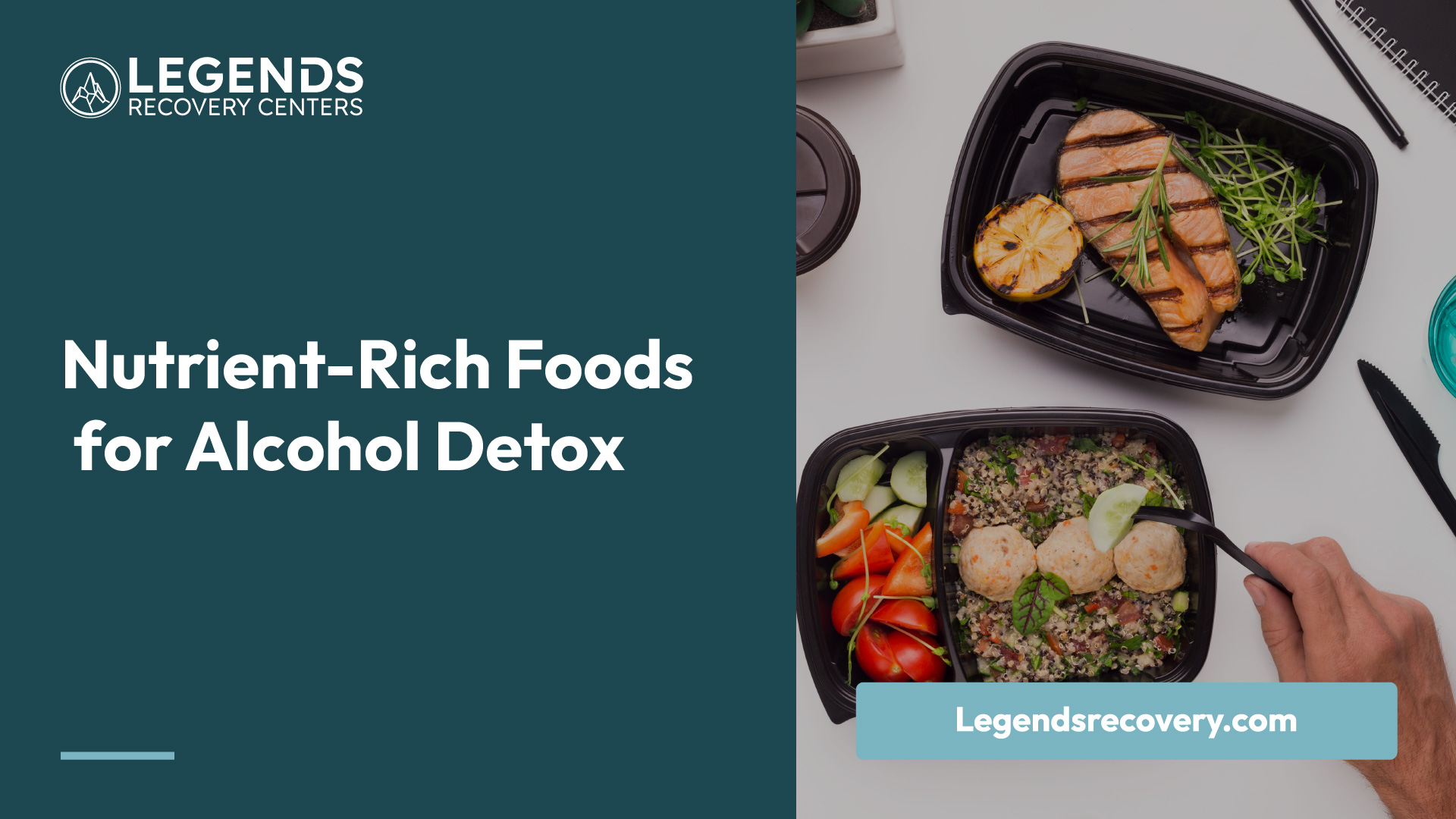Discover the best foods to support your alcohol detox journey. Nourish your body and embrace a healthier you!


Alcohol detox is an important process for individuals looking to overcome alcohol addiction and begin their journey towards recovery. Proper nutrition plays a crucial role during this stage, as it supports the body's detoxification process and aids in overall health and well-being.

During alcohol detox, the body undergoes significant changes as it eliminates alcohol and its byproducts. This process can put a strain on various organs, including the liver, which plays a vital role in detoxification. Therefore, providing the body with adequate nutrition becomes essential to support its recovery.
Proper nutrition during alcohol detox helps to:
Choosing the right foods can significantly aid in the alcohol detox process. Here are some ways in which food can support detoxification:
By understanding the importance of proper nutrition during alcohol detox and how food can support the detoxification process, individuals can make informed choices to nourish their bodies and promote a successful recovery. It is always recommended to consult with a healthcare professional or a registered dietitian for personalized dietary recommendations during this crucial period.

During the process of alcohol detox, it is important to nourish your body with nutrient-rich foods that support your overall health and aid in the detoxification process. By incorporating these foods into your diet, you can provide your body with the essential nutrients it needs to repair and restore itself. Here are some key categories of foods to focus on during alcohol detox:
Hydrating fruits and vegetables are an excellent choice during alcohol detox. These foods not only provide essential vitamins and minerals but also help to replenish fluids in the body. Staying hydrated is crucial for supporting the detoxification process and maintaining overall health. Some examples of hydrating fruits and vegetables include:
Fruits and Vegetables
Watermelon
Cucumber
Berries
Celery
Citrus fruits
Lettuce
Pineapple
Radishes
Incorporating a variety of hydrating fruits and vegetables into your diet can help to flush out toxins and promote optimal hydration levels.
Alcohol can have a negative impact on muscle health, and therefore, it is important to prioritize lean proteins during the detox process. Proteins are essential for muscle repair and growth, and they also help to stabilize blood sugar levels. Opt for lean sources of protein such as:
Animal-Based Proteins and Plant-Based Proteins
Skinless chicken breast
Lentils
Fish
Quinoa
Turkey
Tofu
Greek yogurt
Chickpeas
Incorporating lean proteins into your meals can aid in the recovery of damaged muscles and support your overall well-being.
The liver plays a vital role in detoxifying the body, so it is important to support its function during alcohol detox. Healthy fats can help protect the liver and promote its health. Some examples of healthy fats to include in your diet are:
Healthy Fats
Avocado
Olive oil
Nuts and seeds
Fatty fish (salmon, mackerel)
These healthy fats provide essential fatty acids and antioxidants that support liver function and overall health. Including a moderate amount of healthy fats in your meals can provide the nourishment your body needs during alcohol detox.
By focusing on hydrating fruits and vegetables, lean proteins, and healthy fats, you can provide your body with the necessary nutrients to support the alcohol detox process. Remember to consult with a healthcare professional or a registered dietitian for personalized dietary recommendations based on your specific needs. For more information on foods to reduce alcohol cravings and supplements for alcohol detoxification, check out our related articles.
During the alcohol detox process, nourishing your body with nutrient-rich foods is essential for supporting your overall health and aiding in recovery. Here are some detox-friendly meal ideas to help you replenish your body with essential nutrients.
Breakfast is an important meal that sets the tone for the day. Opt for nutritious options that provide energy and support your body's detoxification process. Consider the following breakfast ideas:
For lunch and dinner, focus on incorporating a variety of nutrient-dense foods that support detoxification and promote overall health. Here are a few detox-friendly meal ideas:
It's important to include healthy snacks and hydrating beverages throughout the day to keep your energy levels up and support your body's detoxification process. Consider these snack and beverage options:
Remember, the key to a successful alcohol detox is to focus on nourishing your body with whole, unprocessed foods that provide the necessary nutrients for recovery.
When undergoing alcohol detoxification, it's essential to prioritize overall health and well-being. By making mindful choices, you can support your body's recovery process. In this section, we will explore three key aspects of supporting overall health during alcohol detox: staying hydrated, incorporating herbal teas, and avoiding processed and sugary foods.
Hydration is crucial during alcohol detox as it helps flush toxins from the body and supports overall well-being. It's important to drink plenty of water throughout the day to maintain optimal hydration levels. Aim for at least 8 cups (64 ounces) of water daily.
In addition to plain water, you can also include hydrating beverages such as herbal teas, infused water, or electrolyte-rich drinks. These can help replenish essential minerals and keep you hydrated. However, it's important to limit or avoid caffeinated and sugary drinks as they can dehydrate the body.
To track your daily water intake, consider using a water tracking app or carrying a water bottle with measurements. Remember, staying hydrated is key to supporting your body's detoxification process.
Herbal teas can be a valuable addition to your alcohol detox journey. Certain herbal teas have properties that can aid in detoxification, promote relaxation, and support liver health. Here are a few herbal teas you may consider incorporating into your routine:
Incorporating herbal teas into your daily routine can not only support your body's detoxification process but also provide a soothing and comforting experience. Remember to consult with a healthcare professional before introducing any new herbal teas, especially if you have any underlying health conditions or are taking medications.
During alcohol detox, it's essential to avoid processed and sugary foods. These types of foods can place additional stress on your body and hinder the detoxification process. Instead, focus on consuming whole, nutrient-dense foods that provide essential vitamins, minerals, and antioxidants.
Opt for a diet rich in fruits, vegetables, whole grains, lean proteins, and healthy fats. These foods can provide the necessary nutrients to support your body's recovery.
By staying hydrated, incorporating herbal teas, and avoiding processed and sugary foods, you can create a supportive environment for your body's detoxification process. Remember, alcohol detox is a unique journey for each individual, and seeking professional guidance is essential. Work closely with a healthcare professional to develop an individualized plan that addresses your specific needs and supports your overall health and well-being.
When embarking on an alcohol detox journey, it is crucial to seek guidance from a healthcare professional. They can provide valuable support and ensure that your detox process is safe and effective.
Consulting a healthcare professional is essential during alcohol detox for several reasons. Firstly, they have the expertise to assess your specific health needs and determine the best course of action for your individual situation. They can help identify any underlying health conditions that may require special attention during the detox process.
Furthermore, healthcare professionals can provide guidance on managing withdrawal symptoms and minimizing potential risks associated with detoxification. They can monitor your progress, adjust your treatment plan as needed, and provide strategies for overcoming challenges that may arise.
By involving a healthcare professional in your alcohol detox journey, you can have peace of mind knowing that you are receiving personalized care and support.
As part of the detox process, a healthcare professional can also provide individualized dietary recommendations. Each person's nutritional needs may vary based on factors such as overall health, specific detox goals, and any nutrient deficiencies present.
A healthcare professional can assess your dietary habits and develop a plan that includes the best foods for alcohol detox. These recommendations may include foods rich in antioxidants, vitamins, and minerals to support the body's natural detoxification processes. They may also suggest specific foods known for reducing alcohol cravings.
In some cases, healthcare professionals may recommend supplements to support alcohol detoxification. These supplements can help replenish nutrient levels and support the body's healing process. However, it's important to consult with a healthcare professional before starting any supplementation regimen.
By working with a healthcare professional, you can receive personalized guidance and support to ensure that your dietary choices align with your detox goals. They can help you create a balanced and nourishing detox diet that supports your overall health and well-being.
Remember, the journey to alcohol detox and recovery is unique for each individual. Seeking professional guidance can provide the necessary expertise and support to help you navigate this process safely and effectively.